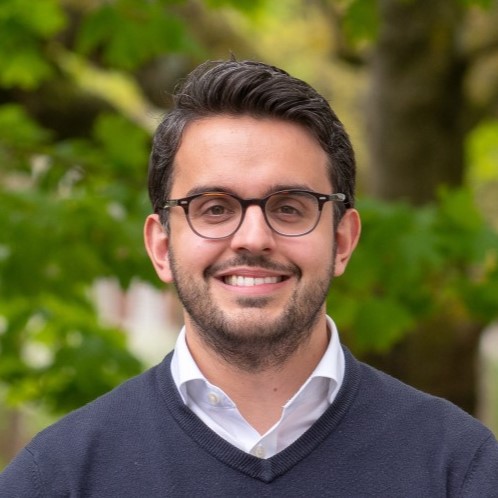Beyond Science: Cultivating Interdisciplinarity with First-Year Chemistry Undergraduates
Introduction
In the creation of the Beyond Science module, rather than getting caught up on “subject matter,” Tom says that “I worry more about how we teach and so how can we teach? How can we develop students most effectively and in a way that supports them.” The Beyond Science module developed out of the Chemistry department’s curriculum review. Tom met with secondary school teachers to “understand where students are” when they head to university and students in their third and fourth years at Warwick to “say there is clearly a gap, what is the gap?” Beyond Science was then curated based on this feedback and aims to support students in their education experience through teaching them not only the “skills, the mindset, the approach that they needed to complete the module” but also their degrees.

Dr Tom Ritchie

Principles of Practice
Project Management and Team-Work
A part of setting students up for success in their studies and future careers is developing their project management skills. Tom argues “project management is a skill you're going to need everywhere. It doesn't matter if you're in chemistry…you are going to have to develop this skill and part of that skill involves being able to work with other people.” Students work together in teams to tackle a real-world issue not only through the lens of Chemistry, but also through other disciplinary perspectives. Teams have the opportunity to connect with academics in other disciplines, “who are the people that can give them that kind of tacit knowledge that they need.” In addition to networking with academics in other disciplines and working on a team, Tom brings in a “chemistry academic talking about their journey, but with a focus on failure and responding to failure, and a focus on working within groups and working with others. So the intent is that chemistry academics are saying to them that you can't do this alone.”
Mentoring and Coaching
Another key feature of the module is mentoring and coaching, where mentors are “recruited from all other disciplines apart from chemistry and life sciences to come and sit on the module and actually mentor the teams.” Tom adds that what this “allows is that for these colleagues to be able to kind of challenge their I'm a chemist perspective and also to use their networks that they have from their own discipline…and the result is we have student groups that are a lot more engaged with their learning, and they come to realise they're not just chemists, which is kind of why it's called Beyond Science.” Students also have access to 15-minute coaching sessions and are exposed to different non-curricular opportunities such as the Undergraduate Research Support SchemeLink opens in a new window, building in further support and encouragement for students to engage beyond their modules as they move forward. Tom reflects: “so I've already got students who want to go to ICURLink opens in a new window and go to BCURLink opens in a new window next year.”


Moving Forward
Co-creation and Integrating Student Feedback
Tom tries to integrate student feedback to further develop the module. Drawing on principles of co-creation, Tom is already thinking about changes to implement for future years based on what students have said regarding improvements for the online component. The way Tom embraces student voice, from conceptualisation to implementation of a module, offers a poignant example for how interdisciplinarity can respond to student needs.


